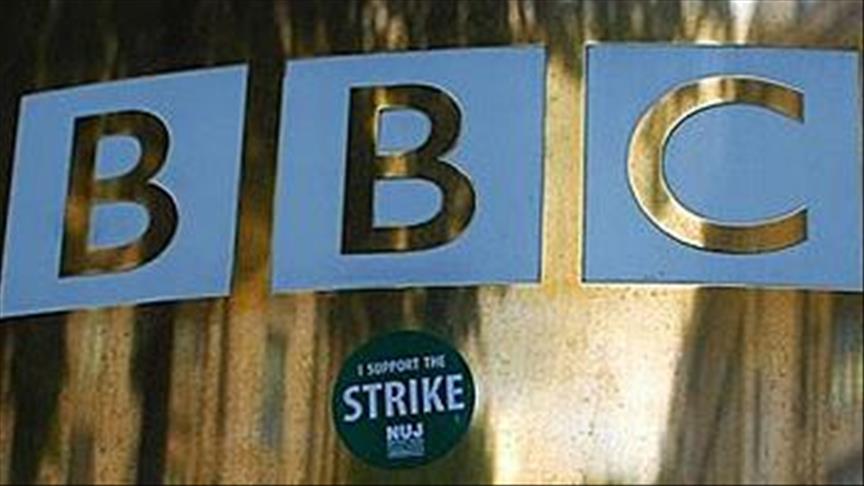
By Busra Akin Dincer
LONDON
After a long, busy morning on Friday, I received an email from a fellow journalist based in London saying that the BBC news network was looking for someone who is critical of the Turkish government. He forwarded to me an email which was from a producer who works for BBC World.
“We are struggling to find anyone in the country who is critical of what the [Turkish] government is doing,” the BBC producer said in the email.
When I read the message I could not help but smile because I actually knew what that person was going through. We both were struggling to find what we were looking for.
While the BBC was struggling to find someone who can denounce democracy, as a Turkish journalist in the West I am struggling to find someone who can actually defend it.
In the West, it seems like nobody cares about the horrifying moments in Turkey when soldiers opened fire on unarmed civilians or tanks ran over peaceful protesters. Nobody cares about how people were willing to sacrifice their lives for democracy, facing soldiers with bare chests, or guns being pointed at journalists in an attempt to silence them.
No, what they are interested in is someone “who is critical of what the Turkish government is doing”.
On the night of July 15, Turkish people shaped history on the streets; a kind of history which will be only written truly by the pure believers of democracy. They have defended their democratically elected government; they did not hesitate to participate in protests and challenge the coup. They have stood up for human rights and the rule of law.
At least 246 people were martyred in cold blood by a group in the armed forces and over 1,530 others were wounded as they protested against the failed putsch that night. The youngest victim was 15-year-old Halil Ibrahim Yildirim who insisted on going outside to protest against the coup attempt. The Turkish media also fought for democracy that night.
An anchorwoman at the state-run broadcaster TRT was forced to read a “military has taken over” statement on air. Meanwhile, the majority of media organizations continued to broadcast live despite attempts to silence them. Two workers at satellite communications agency TURKSAT were killed while trying to prevent coup-plotters from cutting off TV networks.
I was in Istanbul when the coup attempt was launched by the group in the military identified as belonging to the FETO/PDY terrorist organization. I was there when innocent, unarmed people took to the streets for peaceful protests and were shot down by their own soldiers holding guns bought with their taxes. I have attended the funerals in Istanbul and watched people who lost their loved ones crying their hearts out.
After couple of days, I had to fly back to London. I started looking for people who can actually share their views with me on the bloody coup attempt in Turkey. I have sent many emails to leading universities in the country asking for comments on the coup. None have been returned. It was impossible to ask for comments from leading think-tanks because they were busy criticizing President Recep Tayyip Erdogan, who was elected by 52 percent of the people through free and fair elections, and painting “a dark picture” of Turkey even though the coup attempt have failed.
I wish I could say that the media’s take on the events in Turkey was different. However, the most disappointing part of the whole Western approach to the coup attempt was the inaccurate, biased and irresponsible approach of the media.
The BBC used the word “coup” inside quotation marks when it first announced the attempt on June 15. First, I thought maybe it was because initially President Erdogan did not refer to the attempt as a coup but then the channel started to question “who was behind Turkey coup?” implying that it could be staged.
President Erdogan was accused of staging the coup to gain more power. Instead of focusing on the millions of people taking to streets and risking their lives to resist the coup, the BBC has cowardly chosen to air a video claiming that FETO terrorist organization "has millions of followers in Turkey”.
As if it was set on vilifying President Erdogan, the BBC has continued to publish stories about the democratically elected president of a nation. “Country Divided,” “Soldiers attacked by ‘baying’ crowd,” and “Recep Tayyip Erdogan: Turkey’s ruthless president,” were among many stories disrespectfully covered by the BBC while millions of people in Turkey remained on the streets guarding democracy.
And today... I would like to tell one thing to my colleague from the BBC who is “struggling” to find anyone speaking against the Turkish government. The reason why you can’t find any Turkish people is because, without any exception, people from all views, all religious beliefs, sects or color are still on the streets in Turkey.
Try to go to Turkey and spend some time on the streets during the night talking to them. You will see that without any exception they are all united against the all kinds of threats to their country. Whether it is a coup or you…
Anadolu Agency website contains only a portion of the news stories offered to subscribers in the AA News Broadcasting System (HAS), and in summarized form. Please contact us for subscription options.

